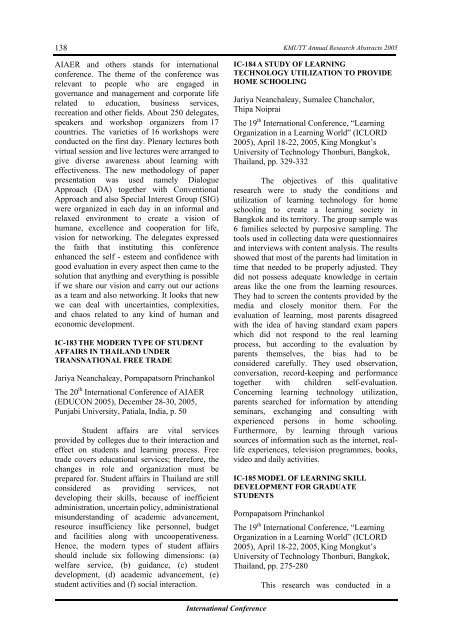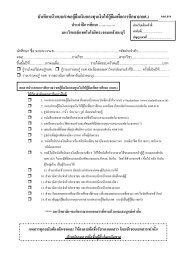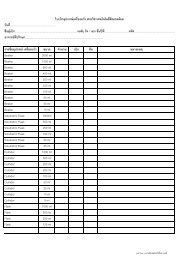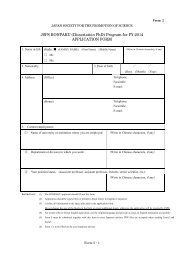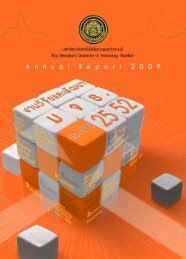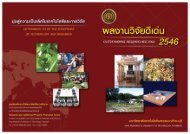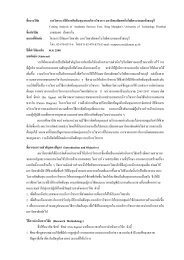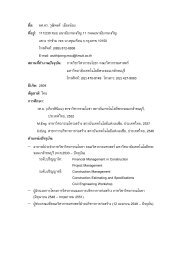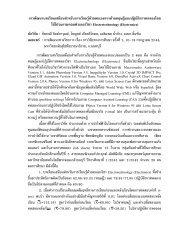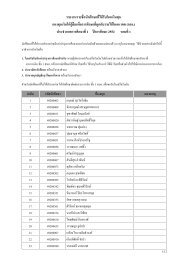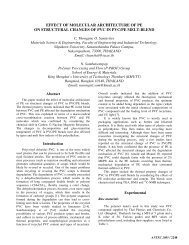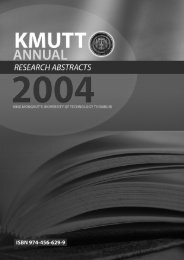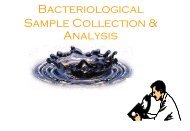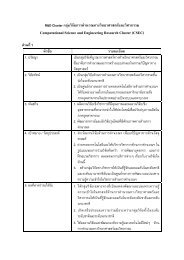You also want an ePaper? Increase the reach of your titles
YUMPU automatically turns print PDFs into web optimized ePapers that Google loves.
138<br />
AIAER and others stands for international<br />
conference. The theme of the conference was<br />
relevant to people who are engaged in<br />
governance and management and corporate life<br />
related to education, business services,<br />
recreation and other fields. About 250 delegates,<br />
speakers and workshop organizers from 17<br />
countries. The varieties of 16 workshops were<br />
conducted on the first day. Plenary lectures both<br />
virtual session and live lectures were arranged to<br />
give diverse awareness about learning with<br />
effectiveness. The new methodology of paper<br />
presentation was used namely Dialogue<br />
Approach (DA) together with Conventional<br />
Approach and also Special Interest Group (SIG)<br />
were organized in each day in an informal and<br />
relaxed environment to create a vision of<br />
humane, excellence and cooperation for life,<br />
vision for networking. The delegates expressed<br />
the faith that instituting this conference<br />
enhanced the self - esteem and confidence with<br />
good evaluation in every aspect then came to the<br />
solution that anything and everything is possible<br />
if we share our vision and carry out our actions<br />
as a team and also networking. It looks that new<br />
we can deal with uncertainties, complexities,<br />
and chaos related to any kind of human and<br />
economic development.<br />
IC-183 THE MODERN TYPE OF STUDENT<br />
AFFAIRS IN THAILAND UNDER<br />
TRANSNATIONAL FREE TRADE<br />
Jariya Neanchaleay, Pornpapatsorn Princhankol<br />
The 20 th International Conference of AIAER<br />
(EDUCON 2005), December 28-30, 2005,<br />
Punjabi University, Patiala, India, p. 50<br />
Student affairs are vital services<br />
provided by colleges due to their interaction and<br />
effect on students and learning process. Free<br />
trade covers educational services; therefore, the<br />
changes in role and organization must be<br />
prepared for. Student affairs in Thailand are still<br />
considered as providing services, not<br />
developing their skills, because of inefficient<br />
administration, uncertain policy, administrational<br />
misunderstanding of academic advancement,<br />
resource insufficiency like personnel, budget<br />
and facilities along with uncooperativeness.<br />
Hence, the modern types of student affairs<br />
should include six following dimensions: (a)<br />
welfare service, (b) guidance, (c) student<br />
development, (d) academic advancement, (e)<br />
student activities and (f) social interaction.<br />
KMUTT Annual Research Abstracts 2005<br />
IC-184 A STUDY OF LEARNING<br />
TECHNOLOGY UTILIZATION TO PROVIDE<br />
HOME SCHOOLING<br />
Jariya Neanchaleay, Sumalee Chanchalor,<br />
Thipa Noiprai<br />
The 19 th International Conference, “Learning<br />
Organization in a Learning World” (ICLORD<br />
2005), April 18-22, 2005, King Mongkut’s<br />
University of Technology Thonburi, Bangkok,<br />
Thailand, pp. 329-332<br />
The objectives of this qualitative<br />
research were to study the conditions and<br />
utilization of learning technology for home<br />
schooling to create a learning society in<br />
Bangkok and its territory. The group sample was<br />
6 families selected by purposive sampling. The<br />
tools used in collecting data were questionnaires<br />
and interviews with content analysis. The results<br />
showed that most of the parents had limitation in<br />
time that needed to be properly adjusted. They<br />
did not possess adequate knowledge in certain<br />
areas like the one from the learning resources.<br />
They had to screen the contents provided by the<br />
media and closely monitor them. For the<br />
evaluation of learning, most parents disagreed<br />
with the idea of having standard exam papers<br />
which did not respond to the real learning<br />
process, but according to the evaluation by<br />
parents themselves, the bias had to be<br />
considered carefully. They used observation,<br />
conversation, record-keeping and performance<br />
together with children self-evaluation.<br />
Concerning learning technology utilization,<br />
parents searched for information by attending<br />
seminars, exchanging and consulting with<br />
experienced persons in home schooling.<br />
Furthermore, by learning through various<br />
sources of information such as the internet, reallife<br />
experiences, television programmes, books,<br />
video and daily activities.<br />
IC-185 MODEL OF LEARNING SKILL<br />
DEVELOPMENT FOR GRADUATE<br />
STUDENTS<br />
Pornpapatsorn Princhankol<br />
The 19 th International Conference, “Learning<br />
Organization in a Learning World” (ICLORD<br />
2005), April 18-22, 2005, King Mongkut’s<br />
University of Technology Thonburi, Bangkok,<br />
Thailand, pp. 275-280<br />
This research was conducted in a<br />
International Conference


